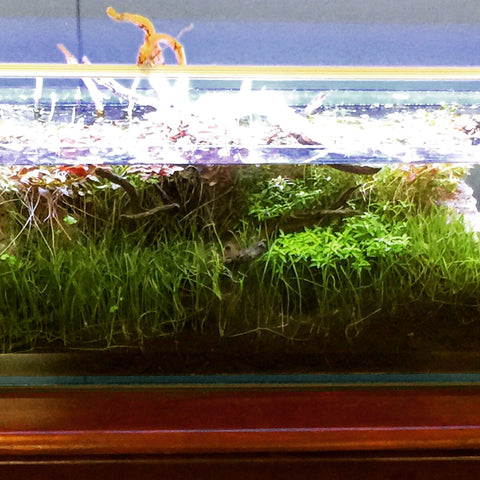- Continue Shopping
- Your Cart is Empty
The long way home...
Seems like we spend an inordinate amount of time in this hobby looking for "shortcuts", or "hacks", as the term has evolved to...Call it what you want, but shortcuts are just that- a way to get the desired result more quickly, with less work, or an easier approach. Calling them "hacks" or whatever doesn't change this. They are still "shortcuts", and are intended to circumvent the need for greater effort or expense.
Or so it seems.
Now, I'm okay with a shortcut when I'm trying to get from point "A" to point "B" in the least amount of time, for example. That's what the "non-stop" flight is all about. Or the tunnel through the mountain instead of the winding rail up and around it. Or the rear exit from the building that puts you on the next street without having to walk two blocks in the rain and cross a long, busy intersection.
Shortcuts are okay for many things. Some simply require greater effort, sacrifice, or energy.

In the aquarium world, I've always been of the opinion that shortcuts are not necessarily such a good thing. Because many of the "shortcuts" people take with regard to aquarium practice involve trying to accelerate, circumvent, or otherwise avoid natural processes that, although might be annoying, time consuming, or otherwise test our patience, are important fundamental aspects of a successful aquarium.
Examples? Here are two that come to mind.
Well, lets start with the "bacteria in a bottle" products. Now, don't get me wrong..I like them and use them. But I use them to "kick start" a system and add a population of bacteria that might not otherwise be present in a new sterile glass box, creating some biological diversity from the outset. I don't use them so I can add fishes the next day and have an instant aquarium. Unfortunately, that is the way the main stream of the hobby has perceived these products. To me, they are an ingredient in a "recipe" to establish an aquarium for the very long term. You can, of course, get similar results by throwing in some frozen food and waiting a few weeks...or taking some used filter media or sand from an established aquarium. The latter two ideas result in additions of bacteria that are likely not as "concentrated", take longer, and so don't really function as a "shortcut" as much as they do an "enhancement" or "kick start" as mentioned above.

Another good one is the use of various "algeacides." Many of these are very effective at erradicating "nuisance" algae in an aquarium. They are also effective at eliminating any type of algae...they can't descrimiante-and in many cases, killing fishes. They carry with them a significant amount of risk. A big, yet tantalizingly attractive trade off- eliminating a problem immediately with a fast-acting solution. Especially tantalizing when you're in the grips of a serious problem; feeling desperate.

However, they do not address the real problem: What practices, habits, or events precipitated the algal bloom in the first place? An algaecide in a bottle can wipe out algae perfectly, but it can't correct poor husbandry or teach you good habits. In fact, in my opinion, this is an example of a "shortcut" product that can create more problems simply by its very nature! Huh? "Screw up your tank by mismanagement? Just dump this stuff in and 'pow!' Algae goes away!" And your'e ready to repeat the cycle again.
That's no solution, in my book.

Look, I know it sounds like I am bashing any development, and tool use to make our lives as quarts easier, the amount of labor less, etc. NO, NO, NO. That is NOT the point at all!
My point is that, we need to teach new aquarists about the fundamentals of aquarium management, rather than an "add this" or "try that" mindset. We need to instill in them that there is an art to keeping fishes, natural rules to understand, and practices that will create positive long-term outcomes ("long term" being the operative word here!). and make us better aquarists. Throwing money or a product that offers a "shortcut" may eliminate the problem quickly. However, it will not make you a more successful aquarist.

The success in our hobby comes from practicing good habits and learning good skills that serve us in the long term. Utilizing technology and spending money is certainly part of the hobby, but so is the understanding and learning of technique and principles of aquarium management that can only truly be learned by getting your hands wet, and taking "the long way home" now and again.
It's a longer journey, but so much more rewarding, in my opinion.
Off my soapbox now. Have a good weekend.
Stay open minded. Stay in touch with the fundamentals...
And stay wet.
Scott Fellman
Tannin Aquatics









Scott Fellman
Author